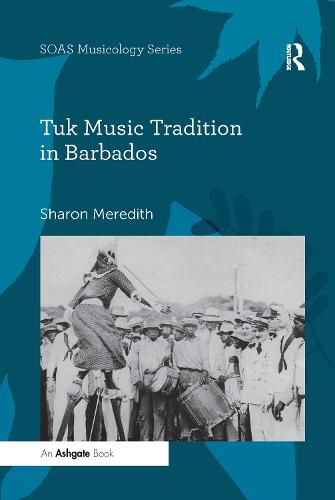Readings Newsletter
Become a Readings Member to make your shopping experience even easier.
Sign in or sign up for free!
You’re not far away from qualifying for FREE standard shipping within Australia
You’ve qualified for FREE standard shipping within Australia
The cart is loading…






Barbados is a small Caribbean island better known as a tourist destination rather than for its culture. The island was first claimed in 1627 for the English King and remained a British colony until independence was gained in 1966. This firmly entrenched British culture in the Barbadian way of life, although most of the population are descended from enslaved Africans taken to Barbados to work on the sugar plantations. After independence, an official desire to promulgate the country’s African heritage led to the revival and recontextualisation of cultural traditions. Barbadian tuk music, a type of fife and drum music, has been transformed in the post-independence period from a working class music associated with plantations and rum shops to a signifier of national culture, played at official functions and showcased to tourists. Based on ethnographic and archival research, Sharon Meredith considers the social, political and cultural developments in Barbados that led to the evolution, development and revival of tuk as well as cultural traditions associated with it. She places tuk in the context of other music in the country, and examines similar musics elsewhere that, whilst sharing some elements with tuk, have their own individual identities.
$9.00 standard shipping within Australia
FREE standard shipping within Australia for orders over $100.00
Express & International shipping calculated at checkout
Barbados is a small Caribbean island better known as a tourist destination rather than for its culture. The island was first claimed in 1627 for the English King and remained a British colony until independence was gained in 1966. This firmly entrenched British culture in the Barbadian way of life, although most of the population are descended from enslaved Africans taken to Barbados to work on the sugar plantations. After independence, an official desire to promulgate the country’s African heritage led to the revival and recontextualisation of cultural traditions. Barbadian tuk music, a type of fife and drum music, has been transformed in the post-independence period from a working class music associated with plantations and rum shops to a signifier of national culture, played at official functions and showcased to tourists. Based on ethnographic and archival research, Sharon Meredith considers the social, political and cultural developments in Barbados that led to the evolution, development and revival of tuk as well as cultural traditions associated with it. She places tuk in the context of other music in the country, and examines similar musics elsewhere that, whilst sharing some elements with tuk, have their own individual identities.